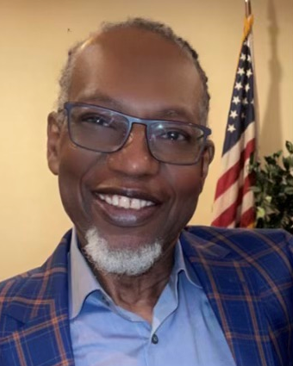House Call
Bill Raynor: Championing Education, Athletics, and Brotherhood
Dr. Jerome Dorn
In the realm of academia, athletics, and literature, Bill Raynor stands as a towering figure—an author, poet, educator, and coach whose impact reverberates far beyond the confines of his Boston home. With a career spanning over four decades in higher education, Raynor’s journey embodies resilience, purpose, and a relentless pursuit of excellence.
A graduate of Dartmouth College with a Master of Education from Antioch College, Raynor’s academic pedigree is matched only by his passion for empowering young minds. Throughout his tenure in higher education, he has donned many hats—as a Basketball Coach, Athletic Director, Special Assistant to the President, and Chief Diversity Officer. However, it is perhaps his role as the architect of the Young Men and Women of Color program at MassBay Community College that epitomizes his commitment to fostering inclusivity and academic success among students of color.
Raynor’s accolades speak volumes about his impact and influence. Inducted into prestigious halls of fame, including those of Catholic Memorial High School, Brown University, and the New England Basketball Hall of Fame, he is revered as a trailblazer in the world of sports. Honored as the New England Regional Coach of the Year multiple times, Raynor’s leadership and mentorship have left an indelible mark on generations of athletes.
Beyond the courts and classrooms, Raynor’s artistic endeavors further showcase his multifaceted talents. With two published books of poetry, including “Poetry in Motion (The Meaning of Sports in Everyday Life)” and “Reflections,” he delves into the intersection of sports, culture, and the human experience with grace and introspection.
However, it is Raynor’s latest work, “Why Black Men Nod at Each Other,” that truly encapsulates his life’s journey. In this poignant memoir, Raynor invites readers to accompany him on a soul-stirring odyssey—from the gritty streets of Boston’s Mission Hill and Whittier Street housing projects to the hallowed halls of Dartmouth College and beyond. Through candid reflections, he confronts the pervasive specter of racism, celebrates the transformative power of education and athletics, and illuminates the unbreakable bonds of brotherhood among men of color.
Raynor’s narrative is more than a mere recounting of personal experiences—it is a call to action, urging readers to confront uncomfortable truths and dismantle the barriers that divide us. His insights serve as a rallying cry for unity, compassion, and understanding, reminding us all of our shared humanity.
As Bill Raynor continues to inspire and uplift through his words and actions, his impact reverberates across communities and generations. In a world hungry for authenticity and empathy, Raynor’s story serves as a guiding light, illuminating the path towards a more inclusive and compassionate future.














